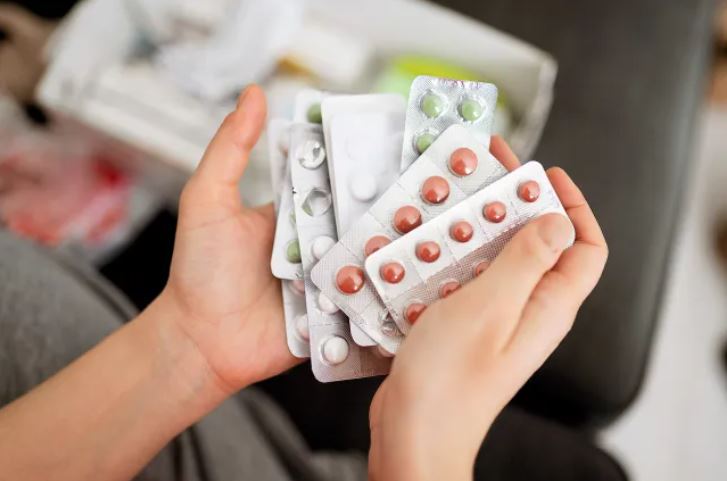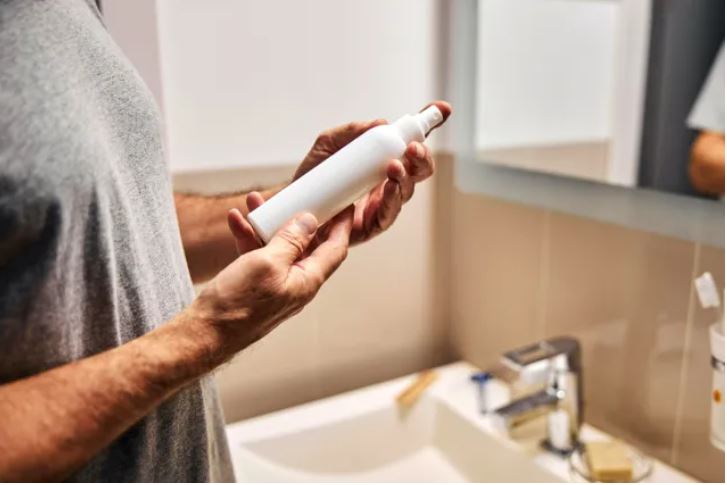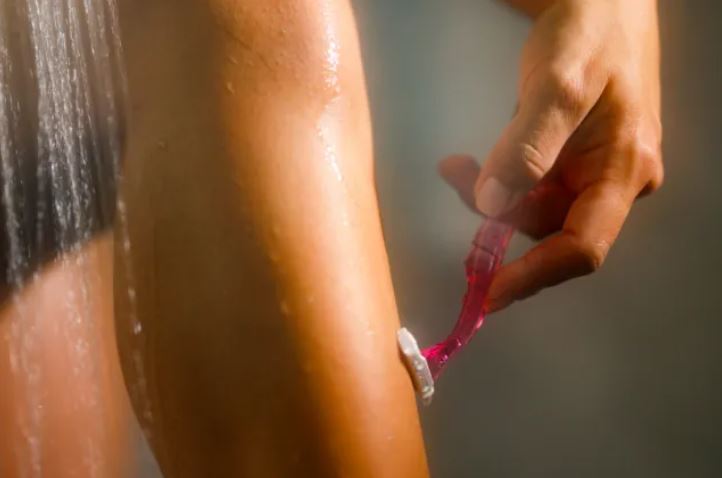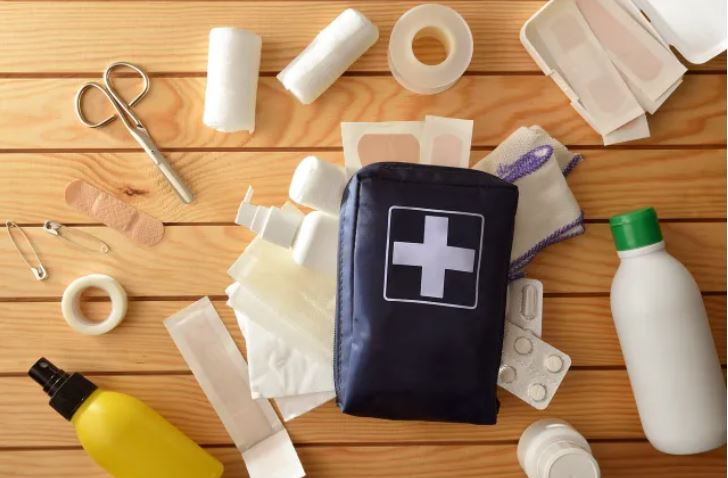
From brushing our teeth in the morning to winding down in a hot bath in the evening, the bathroom is where most of us start and finish each day. As a result, we collect many items to help us stay fresh — which means it’s easy to overlook just how long some of them have been lurking in your cabinet. Break your cycle of clutter by deep cleaning your medicine cabinet, clearing your vanity, and getting rid of these bathroom items today.

Expired Vitamins and Medications
Both supplements and medication lose their potency over time. Empty your medicine cabinet and throw away vitamins that have become gummy, have developed an unusual smell, or are more than two years old. Unused medications can be disposed of at a hazardous waste collection site or during a local prescription drug take-back day to keep them out of landfills and the water supply.

Old Toothbrushes
The American Dental Association recommends replacing your toothbrush every three months, but brushes with frayed or damaged bristles should get tossed sooner. Toothbrushes become less effective once the bristles wear down, meaning your teeth might not get as clean as they should when brushed with an old toothbrush.

Leftover Shampoo
Many personal care products, such as shampoo and hairspray, can still expire even if they aren’t stamped with a best-by date. Most shampoos are good for 18 months after opening. After that point, old shampoo often becomes discolored, clumpy, and less effective at cleaning your hair and scalp, so toss it for your health and well-being.

Hair Brushes
With proper care and cleaning, high-quality hair brushes and combs can last for years, while cheaper options may last six months to a year. Toss your brush regardless of age or quality if it’s developed buildup that can’t easily be cleaned or if your bristles have become frayed and misshapen — shedding, broken, or melted bristles can snag and rip hair.

Old Makeup and Cosmetics
Once opened, exposure to air can cause the ingredients in makeup and skincare products to slowly degrade. Storing them in the bathroom can cause further problems, as exposure to high heat and humidity can encourage mold, yeast, and bacterial growth. Products like mascara, eyeliner, lipstick, and lip balms should be tossed and replaced every six months, especially after an eye infection or cold sore. Most other cosmetics usually last a maximum of 24 months — be sure to check containers for guidelines and expiration dates to determine whether they are still safe to use.

Dull Razors
Shaving with a dull razor can adversely affect your skin and hair. Blunt blades tug on hairs instead of cutting them, which can inflame the hair follicles and cause ingrown hairs. You are also more likely to nick yourself by needing to apply too much pressure against the skin. Avoid this problem by tossing your disposable razors after about five uses or if they develop rust. Or, invest in a reusable safety razor for long-term care.

Hydrogen Peroxide and Rubbing Alcohol
Both hydrogen peroxide and rubbing alcohol are great additions to your first aid kit. Once hydrogen peroxide is opened, however, its shelf-life is limited. Hydrogen peroxide loses its fizzing capabilities after six months — after this point, it is no longer effective and should be tossed. Rubbing alcohol may last a bit longer, with a shelf-life of up to three years, but the isopropanol it contains evaporates over time, making it less effective the longer you have it.

Shower Sponges and Loofahs
Plastic and natural loofahs often live in showers much longer than they should. Natural loofahs often retain moisture after use, making them ideal breeding grounds for bacteria. Help your loofah last longer by shaking it out and hanging it to dry outside of the shower, and replace frequently for best results — every four weeks for natural loofahs, every two months for plastic loofahs, or immediately if they have developed mold or a musty smell.

Old Sunscreen
Sunscreen often lingers in medicine cabinets summer after summer but slowly loses effectiveness over time. While the FDA requires sunscreens to maintain their strength levels for at least three years, the protective chemicals in older bottles can erode and will no longer fully protect your skin from harmful UV rays. If your bottle doesn’t have an expiration date or has passed its best-by date, replace it immediately.

Contact Lens Cases
Properly storing your contacts reduces the chances of an eye infection — which means regularly tossing the cases you keep in. Contact lens cases last one to three months after opening. Dispose of them after this timeframe to prevent bacterial contamination, which can irritate and harm your eyes.

Toilet Seats
While toilets are built to last anywhere from 10 to 20 years before needing replacement, toilet seats often have a much shorter lifespan. Over time, plastic seats can crack or become discolored, wooden seats can lose their protective finish, and both can accumulate bacteria, even with regular cleaning. Home improvement experts recommend swapping out your bathroom’s best seat every five years for best results — a task that can easily be done yourself for a little less than $50.
842 total views, 4 views today
